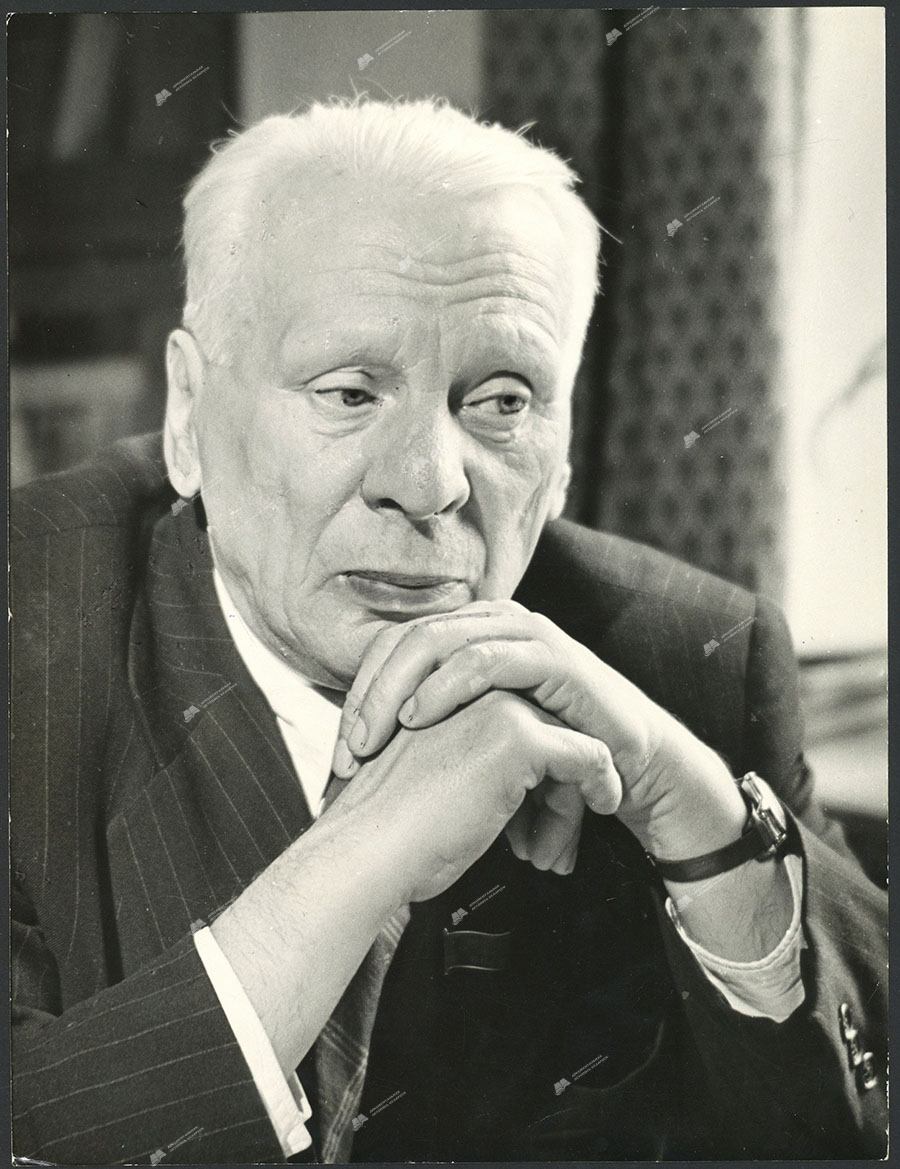
Belarusian Soviet writer, public and political figure. People's Writer of the Byelorussian SSR (1962). Corresponding member (1936) and academician (1953) of the Academy of Sciences of the BSSR.
Mikhail Lynkov was born in the village of Zazyby, Vitebsk district, but spent most of his childhood in a «house on a cart» – a carriage on a dead-end branch of the Vitebsk–Zhlobinsky section of the Rizhsko–Orlovskaya railway near the Toshchitsa station, where his father worked.
In 1917, M. Lynkov graduated from the Rogachev Teachers‘ Seminary. In 1919-1922 he served in the Red Army. An important stage in his life was his work in the Bobruisk district newspaper Kommunist in 1925-1930, which shaped him as an outstanding journalist and writer. He was an active member of the literary association «Maladnyak» and the Belarusian Association of Proletarian Writers. In 1934, he participated in the creation of the Union of Soviet Writers of the BSSR, and in 1938-1948 he headed it. During the Great Patriotic War, he worked as a war correspondent, edited front-line newspapers, and at the same time established himself as a distinguished organizer and literary critic.
In 1945, he became a correspondent for the International Belarusian delegation at the United Nations Conference in San Francisco and witnessed the signing of the UN Charter by our country.
Autobiography of M.T.Lynkov БГАМЛИ. Ф. 191. Оп. 1. Д. 184. Л. 1. The manuscript
Until the end of his life in 1975, N.Lynkov maintained active social activities, headed the Institute of Literature, Language and Art of the Academy of Sciences of the BSSR for many years, and since 1940 he was repeatedly elected a deputy of the Supreme Council of the BSSR.
In 1962, he received the honorary title of People‘s Writer of the BSSR.
Mikhail Lynkov (on the right) with Maxim Tank and his granddaughter Irina БГАМЛИ. Ф. 25. Оп. 1. Д. 62. Л. 27.
In 1968, he received the J. Kolas State Prize. M. Lynkov began his writing career as a poet back in 1919, but gained primary fame in the second half of the 1920s as a master of prose with his characteristic method of description with an emphasis on the unfolding of events. His most famous works include the short stories «Goy» (1929), «Andrey the Flyer» (1930), «Cornflowers» (1942), «Ostap» (1944), the novellas «On the Red Hills» (1934), «Mikolka the Steam Locomotive» (1937), «Lights of Tanganyika» (1957), the epic novel «The Lost Days» (1958).